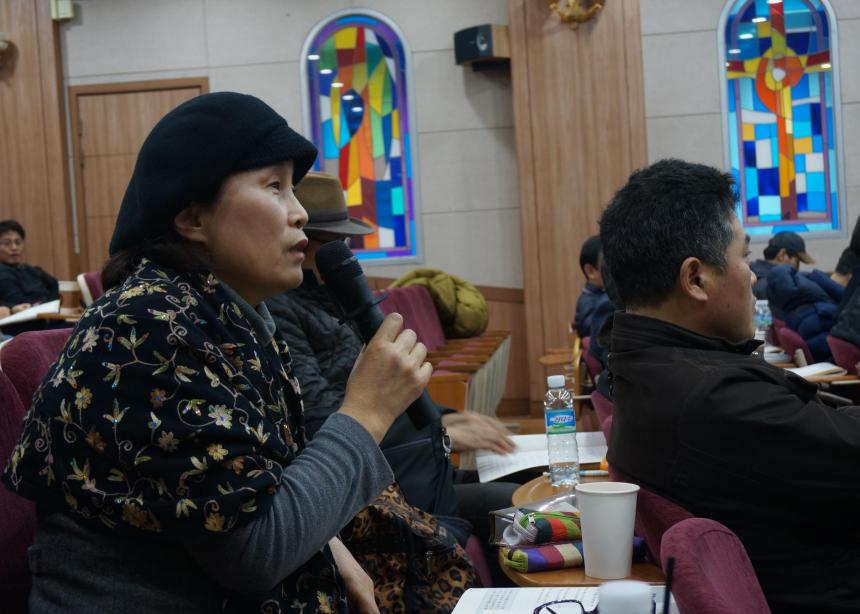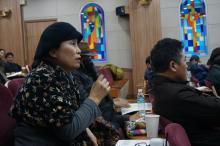On January 30, 2016, nearly 100 people gathered in downtown Seoul, Korea, to participate in the first Korean Anabaptist conference. The goal of the gathering, according to Bock Ki Kim, director of the Korea Anabaptist Center and co-sponsor of the event, was “to introduce Anabaptist theology and values in a public, academic setting” and to “challenge ourselves as Korean Anabaptists to see who we are and what we have to do in South Korea.”
Participants listened and responded to presentations by five speakers on the theme of “What is Anabaptism and Why is it Needed in Korea?” Presenters included John D. Roth, secretary of the Mennonite World Conference Faith and Life Commission and director of the Institute for the Study of Global Anabaptism at Goshen College; Baptist seminary church historian Byung Doo Nahm; Sang Kyu Lee of the Presbyterian Kosin Theological Seminary; conference organizer and Baptist professor Ki Hyun Kim; and Won Bum Jung of the Daejeon Theological Seminary.
In the conversation following the presentations, the question of nonresistance sparked the most vigorous exchange. For the past 60 years, South Koreans have lived in the shadow of a nuclear power to the north. Consequently, military service is an important part of Korean cultural identity, especially for young men. The only recourse for conscientious objectors is imprisonment, a choice recently exercised by Sang Min Lee of the Grace and Peace Mennonite Church in Seoul. His decision remains a highly controversial topic among Korean Anabaptists.
Today, South Korea is home to one of the most creative and dynamic expressions of contemporary Anabaptism anywhere in the global church, with potential for explosive growth in the future.
The origins of Korean Anabaptism can be traced back to multiple sources. In the decades immediately following the Korean War (1950–1953), Mennonite Central Committee had a modest presence in the country. In the 1980s, several key Korean leaders, based in part on their contact with Mennonite Central Committee personnel, began independent theological study of the Anabaptist tradition. Several pursued training at Mennonite seminaries in North America. In 2001, a more formal relationship with Mennonite Church Canada Witness, combined with the energetic leadership of members of the Jesus Village Church, led to the formation of the Korea Anabaptist Center, which has since served as an important resource to the growing movement.
Dae Jang Gan Press has overseen the translation and publication of nearly 100 Anabaptist-Mennonite books into Korean. In fact, church leaders and others celebrated the book launch of the Korean translation of John D. Roth’s Beliefs: Mennonite Faith and Practice before the conference began.
Through this Korean Anabaptist conference, various Anabaptist groups came together to offer a unified voice within the larger Korean Christian context.
“People want to see a healthy, biblical church, justice in the public square, and a tangible community based on the Anabaptist movement,” says Bock Ki Kim. “We hope that the conference can be a small catalyst for the future movement as well as a clear invitation to the participants to follow the way of Jesus Christ in their daily lives.”
For background, see:
Spreading the Word in South Korea
Murray shares Anabaptist vision in South Korea




Add new comment
Canadian Mennonite invites comments and encourages constructive discussion about our content. Actual full names (first and last) are required. Comments are moderated and may be edited. They will not appear online until approved and will be posted during business hours. Some comments may be reproduced in print.